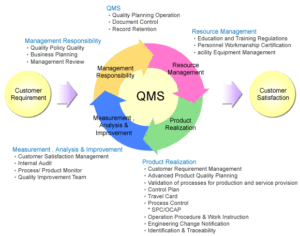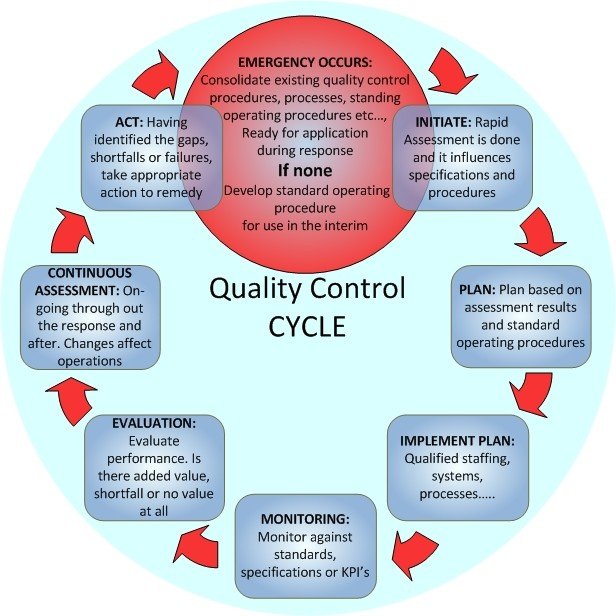Quality Management System

A quality management system (QMS) is a collection of business processes focused on consistently meeting customer requirements and enhancing their satisfaction. It is aligned with an organization’s purpose and strategic direction (ISO9001:2015). It is expressed as the organizational goals and aspirations, policies, processes, documented information, and resources needed to implement and maintain it. Early quality management systems emphasized predictable outcomes of an industrial product production line, using simple statistics and random sampling. By the 20th century, labor inputs were typically the most costly inputs in most industrialized societies, so focus shifted to team cooperation and dynamics, especially the early signaling of problems via a continuous improvement cycle.
In the 21st century, QMS has tended to converge with sustainability and transparency initiatives, as both investor and customer satisfaction and perceived quality is increasingly tied to these factors. Of QMS regimes, the ISO 9001 family of standards is probably the most widely implemented worldwide – the ISO 19011 regime applies to both, and deals with quality and sustainability and their integration.
Process:
A QMS process is an element of an organizational QMS. The ISO 9001:2000 standard requires organizations seeking compliance or certification to define the processes which form the QMS and the sequence and interaction of these processes. Butterworth-Heinemenn and other publishers have offered several books which provide step-by-step guides to those seeking the quality certifications of their products
Examples of such processes include:
- order processes,
- production plans
- Product/ service/ process measurements to comply with specific requirements e.g. statistical process control and measurement process analysis,
- calibrations
- internal audits
- corrective actions
- preventive actions
- identification, labeling, and control of non-conforming products to prevent its inadvertent use, delivery or processing,
- Purchasing and related processes such as supplier selection and monitoring
ISO9001 requires that the performance of these processes be measured, analyzed, and continually improved and the results of this form an input into the management review process.




